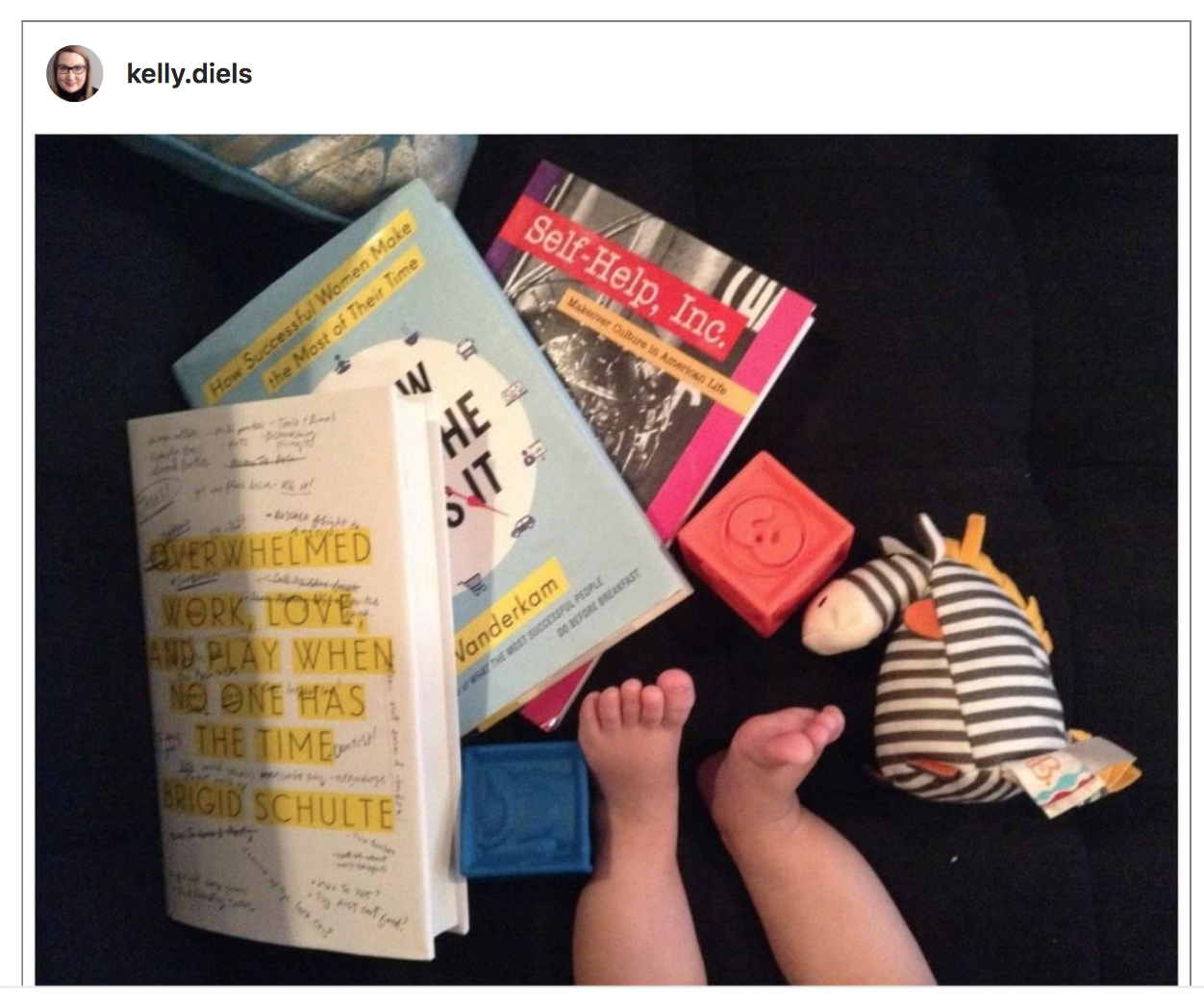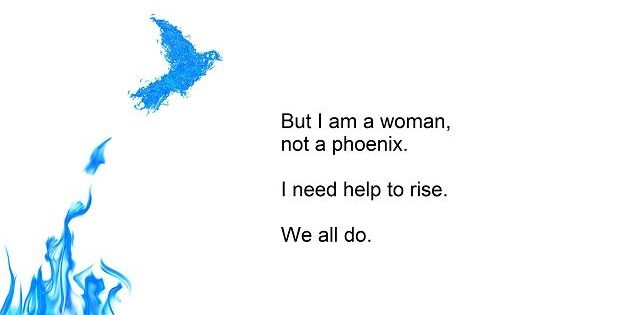
The Price of Women’s Time, Because ‘Time is a Feminist Issue’


“Time is a Feminist Issue” – Brigid Schulte, author of Overwhelmed
—–
A Sunday Love Letter *****from January 31 2016*****
—
before we jump into the rest of this love letter, here’s what I published on www.kellydiels.com this week:
Not Enough Compensation in the World
The world-changing rhetoric and empowerment offered by The Female Lifestyle Empowerment Brand is postfeminist and thin. Literally.
(This massive 4,037 word essay is Part 2 of the thinking I’m doing for my book about The Female Lifestyle Empowerment Brand.)
okay, let’s go!
———-
Philanthropy is cool. I look at the great people doing great things and I think, I want to do that.
I would love to eradicate malaria. I want to raise a million dollars to support Syrian refugees. Can you even imagine how incredible it would be to be able to pay for a group of kids’ college educations?!
How amazing it must be to be able to save a life or make someone’s dreams come true.
Philanthropy seems so far away, though. It seems like it’s something for people more advanced and successful than me. It’s the mountain in the mist. Maybe it’s where we’re going?
It’s where most women already are and I think we don’t even realize it.
Except what we’re doing isn’t necessarily an explicitly voluntary, gorgeous, generous thing. What we’re contributing can be sneaky and invisible — so much so, that it’s stolen from us.
Our society is “getting a free ride on women’s unrewarded contributions to the perpetuation of the human race”, wrote Judith Shulevitz an op-ed for The New York Times a few weeks ago.
It’s a bold statement and a call to arms. Shulevitz is proposing an unconditional basic income to be paid to everyone – and her argument, at least in this column, pivots on the recognition that there are people in our communities who are uncompensated caregivers and we could not function without them and their free labour.
And by ”we”, she means corporations, government, schools, families, and every single one of us.
We’ve got this idea that in our current economy we trade labour for cash and that’s how we all survive, but even being able to trade our time for dollars often depends on someone else donating their time and caregiving for the cause.
Until recently in my own home, my mom cared for my baby every Wednesday so I could write. Her free caretaking labour was the foundation for my (very limited) professional activities. She’s a caregiver working for free. She’s my personal philanthropist, my patron.
That’s a teeny-tiny example within a family. But I see it publicly, too.
Like, say, in public schools. So many of the things that were normal goods and services in schools when I was growing up are now considered by school boards to be luxuries. And where the budgets end, parents start organizing, fundraising, volunteering.
And by parents, I mean mostly mothers and women (at least in my kids’ schools).
Now, I don’t want to suggest we shouldn’t be invested in our schools or we shouldn’t be present and involved with our children, their educators and their education.
What I *do* want to draw attention to is this: when governments and school boards cut dollars from their budgets, we step in with our uncompensated labour to fill the gap. The revenue and dollar value of our off-the-books time and labour is real, and really valuable, but it is not a line item in these official budgets.
So most of us are philanthropists. With our time. Whether we want to be or not.
If we don’t raise money for a playground, there won’t be a playground. If we don’t volunteer in the library, there won’t be library hours.
So the budget inputs and outputs are still there, but the official sources of revenue have been replaced with uncompensated time from volunteers AKA women.
There’s a kind of an expectation, a sense of entitlement in that. Our elected officials predict that we’ll fill in where they fall short. They’re counting on it. Revenue from our uncompensated efforts is a line item, just an invisible one.
And our donated time/revenue eases what could otherwise be a political squeeze. If, at the beginning of the year, the public school presented each of us with an invoice for, say, $X,000 per student, you’d suddenly see a whole lot of outraged parents giving interviews to local reporters. You’d see fractious school board meetings – you’d probably even go to one! (I’ve never been to one) – make the news. It would be so flamboyantly and unrepentantly obvious what was missing from the budget and how little our children’s educations are worth to the powers-that-be that I think we’d raise a ruckus.
Instead, no bill is presented but we fill in bit-by-bit. We see the immediate need but not the big numbers on the books or the true value of our uncompensated time. And because we’re not confronted with the dollar figure of what our institutions feel entitled to extract from us in addition to what we already contribute in taxes, we don’t protest it.
This is what I think about when Judith Shulevitz writes that society is free-riding on the uncompensated labour of caregivers:
- My professional activities in the last six months were predicated on my mother’s free labour.
- My husband’s out-of-town, project-based career depends on my uncompensated labour. (Each year at the holiday party, his boss gives all the wives flowers – and it is all wives – because the company couldn’t do the work it does if they weren’t at home handling everything so their husbands – and it is all husbands – are free to go out of town.)
- Our institutions, like public schools, are supposed to be funded by us as a collective but in fact depend on volunteer time and fundraising from individuals – usually women – and would not be able to provide many of the basics without that time and revenue.
So then I started thinking about all the places in which I am a time-philanthropist. What if I applied an hourly rate to that? How much am I actually contributing?
Again: it’s cool to volunteer, with love, and when and where you consciously and explicitly want to volunteer to support causes you care about. But I have zero desire to continue cosigning inequitable systems or unprotested problems with my unconscious contributions and my uncompensated time.
I want to draw attention to the systemic nature of what scholar Diane Negra calls “women’s chronic, temporal crisis” (aff). I also want to shift my personal practices so that I actually have personal practices. I want to account for the way I’m contributing my time to the economy and The System. I want a number.
Because if The Economy was a person and said to me, Hey Kelly, this year I’m going to need $24,000 from you to keep my unjust mechanisms working smoothly, my answer would be NO FUCKING WAY.
What institutions – like corporations and governments – are only able to function effectively because of our free labour?
What collective, systemic problems are we allowing to remain invisible, unremarked and unprotested because we enable it with our free labour?
And how much am I contributing? What is it worth to me? What does it cost me?
What would happen in my life and my world if I set both goals and loving, kind boundaries around my free labour?
What would I discover about myself and my community if I put a dollar value to my time and then measured how much and where I’m contributing?
I want to know the answers to these questions. So let’s keep the receipts, shall we?
Let’s be intentional and consciously contribute to the things that need and deserve our time.
Let’s keep receipts for when we do that (it’s an achievement to be celebrated) and for the instances when we’re contributing to things we don’t want to cosign.
Let’s make it real and obvious – to ourselves and each other – the value of our time in our own lives and in our world.
As an experiment, I’m time-pricing and time-tithing:
- I’m putting a price on my time to make it vivid and in my face how much I’m giving away, especially when I didn’t intend to or don’t want to. (Time-pricing.) You don’t have to use cash as your metric; it could be any unit; but I’m using dollars because money is compelling to me, personally.
- Then, each month, I’m setting a goal for how much of my time I plan to gladly and consciously contribute. (Time-tithing.) This month I decided I’d contribute 20 hours to my community, which I defined as individuals and organizations who ask me for uncompensated help; my kids’ schools; plus the volunteer time expected of me beyond the fees for their leagues and extracurricular activities. (Sixteen days in, I was 15 hours over my target number.)
The results of my time-pricing and time-tithing this month?
- I decided not to continue sparring with a particular person. I counted up the time I spent arguing with her and realized that if she’d come to me and asked me for $1,100, I would have replied with a shocked no. And maybe curse words. But instead I gave that amount to her over the last several months with my time. No more.
- I hired more caregivers. This is a line item in OUR household income, not an expense against my income and mine alone – and besides, every dollar we invest in childcare yields way more than that in present and future income. Not to mention peace of mind. I was in an acute state of distress. No more.
- I’m so much happier as a mother and a partner when I have assistance and, oh my goodness, time to myself to just be. I’m actually engaging in relationships with my beloved family because I have the capacity – in pure time – to do that.
- I realized I’m amazing. I help so many people and so many groups. Tracking my investment in people and causes I care about made me feel strong, capable and significant. I feel like I’m having an impact. The numbers tell me I must be. This was a welcome relief from feeling like I’m failing everyone every time I say no (or, more often, a resentful, half-assed yes).
- I said whole-hearted big yeses to things that were important and then gave more than they expected or asked for. I might not have $2,000 to give to projects and causes in cash but I can give that in service. Because I love what you’re doing. Because it’s an honour to be a part of it. #blacklivesmatter
- I said no to a few requests. I literally thought: that’s $500. I don’t want to give X $500. I want to give her or them $500 or I want to keep it for myself but that no, that thing being proposed can’t have my $500 or my Saturday night because I want to have sex with my man.
- I worked with a fervency and intensity like none I’ve ever experienced before. I’m paying caregivers. I’ve got to make the time I spend working count.
- I did truly great work.
- I rested. I allowed myself to rest – which is new – because I had a measure for how much I was actually accomplishing even when I wasn’t getting paid for it. I made a huge contribution to our economy this month. I tithed my time where it counted, culturally and for justice. I had my friends’ and community’s backs. Yes. I can chill on the weekends.
Putting a price on my time and setting a goal to achieve around tithing my time made me more more intentional and sovereign with my time.
It made me give more, in certain places, and less, in others.
It made me feel capacious and generous because it showed me, in concrete terms, just how much I am actually accomplishing and giving – which was a stunning (and refreshing) contrast to how I usually feel, which is like I don’t do enough of anything for anyone.
Pricing and tithing my time wasn’t a time-hack that enabled me to cope with systemic pressures while erasing them from view. Instead, it gave me a metric for my unacknowledged contributions that made me more convinced than ever that I should have a say in the institutions that require my uncompensated time to function.
Which is to say, all of them.
It’s not that I don’t value caregiving and volunteering. I do.
It’s not that I don’t want to give my time away. I do.
I just want to give it where it is needed, deserved, appreciated and makes an impact.
Because, as Brigid Schulte says, ‘Time is a feminist issue’.
Let’s use our wild and precious time fiercely, consciously and with much love.
And let’s track, calculate, celebrate and marvel at how much of our time we do contribute. It’s valuable. It’s essential. It has an impact. Our time-donations make everything possible in every sphere of our society. Women and marginalized people are the greatest yet most unrecognized philanthropists in the entire world.
love + justice,




